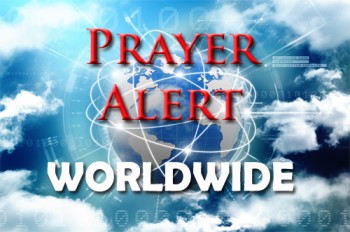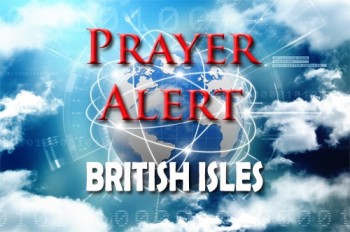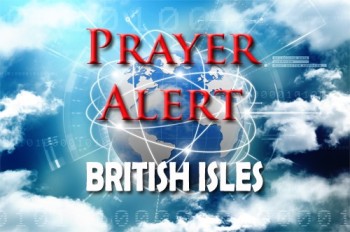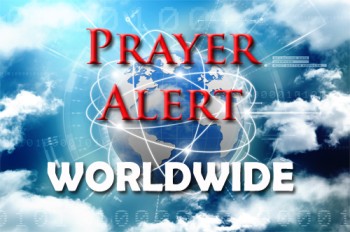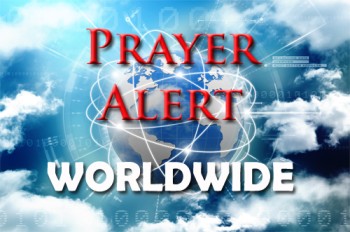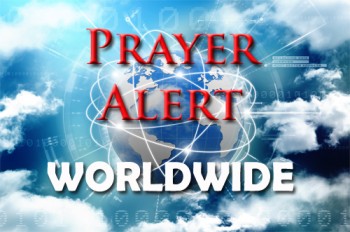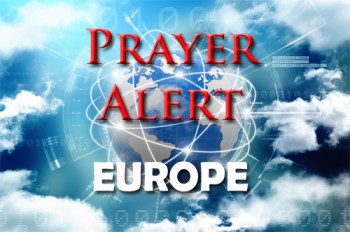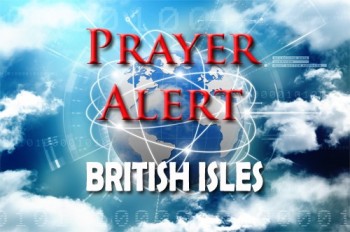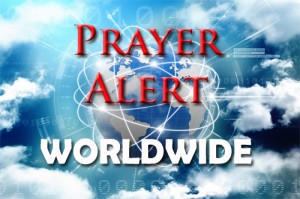Displaying items by tag: freedom of expression
Global: ‘a journalist is killed every four days’
A recent UNESCO report shows that the number of journalists killed worldwide surged in 2022-23, with a significant increase in fatalities. On average, one journalist was killed every four days, highlighting the growing danger faced by media workers. The total number of journalists killed during this period reached 162 - a 38% rise. Latin America and the Caribbean accounted for the most deaths (61). In 2023 the majority of journalist killings took place in conflict zones, a reversal of a long-term decline in such deaths. The report also highlighted the alarming issue of impunity; 85 percent of journalist killings remain unsolved. 14 women journalists were killed, and the Palestinian territories saw the highest number of fatalities, with 24 journalists killed in the line of duty. UN secretary-general Antonio Guterres has called on governments to take ‘urgent steps’ to protect journalists and investigate and prosecute all crimes against media workers.
Police apologise to arrested pastor after destroying street preaching signs
Avon and Somerset police have issued an apology to Pastor Dia Moodley, who was arrested while street preaching in Bristol. Moodley, a grandfather and pastor, was detained for thirteen hours after being accused of 'racially or religiously aggravated harassment without violence'. The arrest followed an incident where Moodley answered a question contrasting Christianity with Islam and expressed his belief in binary gender. During the confrontation, he was pushed from his stepladder, and his signs were damaged. One of the signs, which contained a Bible text, was destroyed by university staff when instructed to do so by the police. Moodley, represented by the Alliance for Defending Freedom (ADF), sustained a soft tissue injury during the altercation. His counsel called the treatment 'appalling' and urged the strengthening of free speech laws to protect peaceful, lawful expression of beliefs. Although the police dropped their investigation, the event highlights concerns over discriminatory policing and the freedom to share Christian beliefs publicly.
New safe zones outside abortion clinics
From 31 October, safe zones around abortion clinics in England and Wales will take effect, prohibiting protests within 150 metres of these facilities under the Public Order Act. The new law, which received royal assent in May last year, aims to prevent harassment, intimidation, or obstruction of women seeking abortion services, as well as clinic staff. It is now illegal to engage in behaviour that intentionally or recklessly influences someone’s decision regarding abortion services. Silent prayer may also fall under this ban, a contentious point raised by anti-abortion groups who argue it infringes on their rights to freedom of expression and religious belief. Campaigners advocating for the ban, such as the British Pregnancy Advisory Service, argue that it is necessary for ensuring the safety and dignity of women. The maximum penalty for violating the law will be an unlimited fine. See
Haiti / Mexico: killing journalists
Fritz Dorilas is the eighth journalist killed this year in Haiti. There is surging gang violence, political instability and targeted attacks on the media. The capital’s increasingly powerful criminal gangs battle for control in a political vacuum after President Moise’s assassination. Haiti has security and humanitarian crises after weeks-long blockades on key petrol terminals caused electricity and water shortages that exacerbated already-high rates of hunger. His killing came shortly after Romelson Vilsaint died during a Port-au-Prince protest when police threw tear gas and opened fire on journalists demanding the release of a colleague. Mexico has been plagued by journalists’ killings since the government’s war on cartels began. It is one of the most dangerous countries in the world to be a journalist: 13 had been killed by the end of August. A web of violence, corruption and impunity has plagued Mexico and despite government efforts to protect journalists, the situation has worsened.
Mexico: eleven journalists killed in 2022
Yessenia Mollinedo and Sheila Johana Garcia were shot on 9 May, raising the death toll of journalists this year to eleven. Mexico is the most dangerous country for media workers outside of war zones. Authorities are searching for a motive for their murder. Media rights group Reporters Without Borders are investigating the incident. Mexico’s federal government has been criticised for neither preventing the killing of journalists nor investigating them sufficiently. Although organised crime is often blamed for attacks on media workers, small-town officials and politicians with political or criminal motivations are often suspects in these crimes. Crimes against freedom of expression occur daily. It is not clear if Mollinedo or Garcia were enrolled in a federal protection programme for journalists and human rights defenders. Several of the journalists killed this year had made contact with the programme at some point. Although President Obrador promises a ‘zero impunity’ policy when investigating such slayings, he continues his regular verbal attacks against journalists critical of his administration.
China: fears for health of Christian activist in detention
CSW has called on China to release Christian human rights defender and former lawyer Zhang Zhan, who is on a hunger strike, causing fears for her health, after 150 days in detention. She posted videos and articles from Wuhan about the Covid-19 outbreak. Social media platforms are blocked in China. She questioned whether the authorities' response to the epidemic infringed on human rights, and asked if the severity of the outbreak had been covered up. She was deeply concerned about the voiceless Wuhan citizens who face destitution after losing livelihoods. She is accused of ‘picking quarrels and provoking trouble’ and refuses to plead guilty. Zhang’s lawyer met her for the first time in detention on 18 September and reported she was still on a hunger strike and had lost weight. Detention staff are force-feeding her as she refuses to eat or drink anything.
Russia: internet censorship
Reporters Without Borders and nine international human rights NGOs called on Vladimir Putin not to sign the 'sovereign internet' bill into law because it would take Russia across a major threshold in online censorship. The law the Russian parliament approved on 22 April, which Putin is poised to sign, would take Russia closer to the Chinese model of online censorship. It would establish a 'sovereign' internet, independent of the international internet and closely controlled by the Kremlin. Internet service providers would have to direct traffic through a centralised system of devices controlled by Russia, with approved internet exchange points, and to use a national domain name system that would facilitate surveillance and, in the event of unspecified 'security threats’ would allow the authorities to block traffic between Russia and the rest of the World Wide Web partially or fully, and within Russia.
Government challenged over arrest of street preacher
The arrest and subsequent release of street preacher Oluwole Ilesanmi in Enfield on 23 February (see) prompted outrage on social media, and prompted questions in parliament. Theresa Villiers MP asked the Home Office what guidance is provided to the police on street preachers, what lessons have been learned from this incident, and what steps are being taken to ensure that church groups can preach on the street. The Government replied that freedom of expression is a vital part of a democratic society, and it is a long-standing tradition that people are free to share their views with others. On 21 March Christian Concern reported that London mayor Sadiq Khan is to face questions over the incident, especially since the the police have changed their story on Olu's 'de-arrest'. See
USA: Colorado baker back in court
Less than three months after winning a Supreme Court case backing his religious freedom of expression, Colorado Christian cake artist Jack Phillips is facing yet another battle. A new complaint was recently filed against him after an attorney asked him to make a cake pink on the inside and blue on the outside, representing a transition from male to female, to celebrate a gender transition. Phillips declined to make the cake, because of his religious beliefs. On 15 August attorneys representing him and his Masterpiece Cakeshop filed a lawsuit to fight this new complaint, which they said constituted a ‘doubling down of anti-religious hostility’ by Colorado officials. They said, ‘Colorado is ignoring the message of the US Supreme Court by continuing to single out Jack for punishment and to exhibit hostility toward his religious beliefs.’
Christians can wear a cross at work
Thank God! Christians have finally been told they can wear crosses and religious symbols at work. New official guidance will warn that dress codes will NOT be allowed to ban such items. Non-compliant companies could be fined or forced to pay compensation. Equalities minister Victoria Atkins is rounding on religious intolerance as long as symbols do not interfere with the ability to do the job. She said: ‘Discrimination in the workplace is not only completely unacceptable but also against the law. We will not stand for it. Our society has a proud tradition of religious tolerance; I want to see that reflected in workplaces across the country.’ The Church of England welcomed this ‘sensible decision’, adding: ‘Christians who wish to show their faith by wearing a cross should be free to do so. Freedom of expression continues to be an important British value.’
